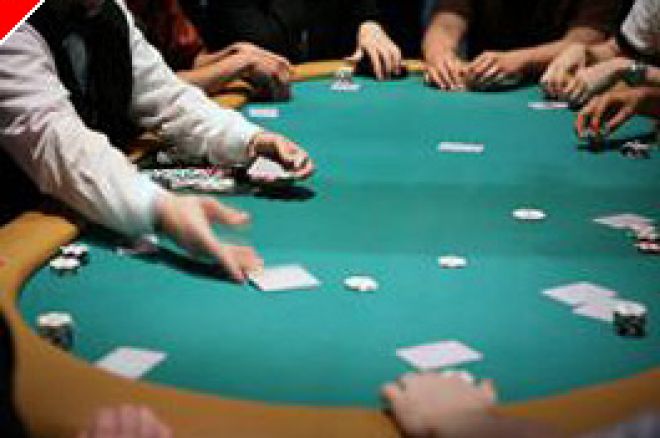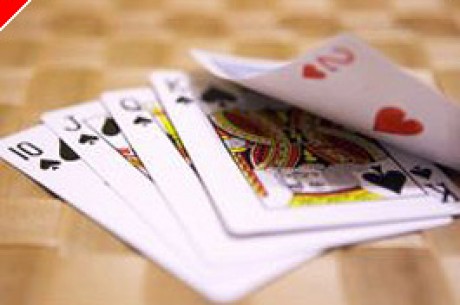'The Rules Of Poker' An Entertaining And Useful Book

Part of the charm of the game of poker is that anyone can participate in it. From home games to bar leagues to the upper echelons of the poker world, even the greenest of newcomers can jump into the game and, sometimes, be successful. The downside of newcomers, though, is the fact that sometimes they can have no basic knowledge of the game, even to the factor of "what beats what"!
In the distant (OK, maybe not so distant!) past of the world of poker, arguments over rules and guidelines could, at the least, lead to shouting matches and even go as far as fisticuffs and even gunfire (how many Wild West games ended that way?). Although there are guidelines well set in place by such organizations as the Tournament Directors Association (TDA) and others, there is not a definitive "rules book" as to the conduct of a poker game. Veteran poker writer Lou Krieger and his co-author, Sheree Bykofsky, have rectified that with "The Rules Of Poker".
"The Rules Of Poker", published by Kensington Books and available now in all bookstores or online for $13.95 ($19.95 Canadian) is a much needed book that covers every aspect of poker and its various intricacies, including games outside of Texas Hold 'Em such as Stud games, Omaha and Lowball variations. It also lays out a very strong tournament rules section that, with its implementation, could bring all poker tournaments into a viable and useful standard that would allow players to all be on the same page rather than deal with the differences between casinos.
Krieger and Bykofsky have exhausted themselves in the research that they put behind the book. They interviewed not only some of the most recognized tournament directors in the world (such as WPT Tournament Director Linda Johnson and top TD Matt Savage) but actually went to the "horse's mouth", so to speak, of floor managers and personnel that actually work in the poker world. "The Rules Of Poker" is an outstanding rulebook that all poker players should have in their libraries, at the minimum as a reference book (so that they know all the particular rules) and all people in charge of directing any level of poker game should have so they are not surprised by a particular situation.
There are several outstanding aspects to "The Rules Of Poker". First, the book is thorough in covering seemingly every aspect of every game that poker has to offer. This in itself requires the entirety of the 276 pages of the book to detail. It also deals with "special" variations, such as Kill games that can be very difficult to understand for even some poker veterans. "The Rules Of Poker" also steps into what is to be expected from every part of the poker community, from the floor management to the "house" to the players themselves. Such thoroughness is very necessary in the world of poker, because rules can deviate from home game to home game and even from casino to casino.
Secondly, Krieger and Bykofsky could have made a very dry (and, thus, boring) treatise that wouldn't have been worth the reading time. Rather than doing this, however, they have emphasized the points of the rules they set down by spicing the rules with anecdotes from the people they have talked to. This makes for every section of the book being worth reading, as the people who have actually been "in the trenches" demonstrate how and why they impose their particular rulings. While some may have liked a by-the-numbers rulebook, the tales spun by the TD's as they implement the practices adds to the charm and readability of the book.
Finally, "The Rules Of Poker" goes as far as to address the current rules and suggest changes that should be made. In what was one of my favorite sections (and one where I was in agreement with their suggestions), Krieger and Bykofsky analyze some of the more volatile poker rules issues and offer suggestions for changes or outright removal of them from the game. The "F-word" rule is a particularly interesting one, with Lou and Sheree suggesting a usage of the rule that most could agree with.
"The Rules Of Poker" is a book that has been necessary for quite some time in the world of poker. If the rules (and their implementation) could be instituted throughout the poker world, then many of the disagreements that arise could be headed off or completely avoided. Lou Krieger and Sheree Bykofsky, at the same time, have come up with an entertaining work that will keep the reader's interest while educating them on the workings of different aspects of the poker community and poker games themselves. Whether you are a budding tournament director, floor worker, professional or recreational player, "The Rules Of Poker" is a book that should be in your library and well worth continued readings and studying.








